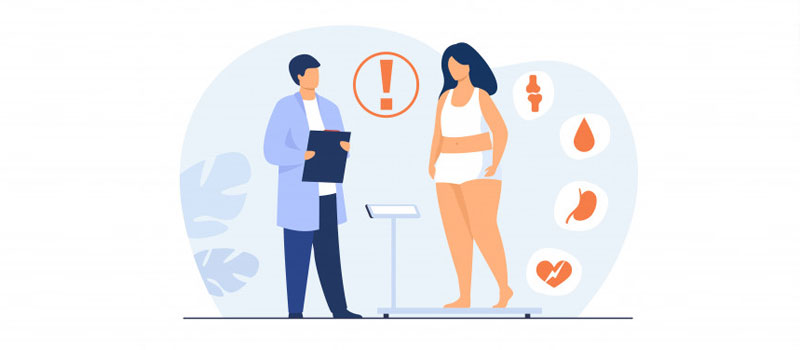Obesity has been on the rise for several years now, as a result of a poor quality of lifestyles that includes processed food diets and sedentary routines. Obesity can lead to a string of health concerns that lower an individual’s quality of life and overall wellbeing.
One of the most alarming health risks that obesity poses is heart disease. In fact, many specialist cardiologists and health professionals believe that there is a strong link between obesity and health disease.
How Does Obesity Cause Heart Disease?
Here are the 3 major ways that obesity contributes to heart disease:
1. Obesity Affects Cholesterol Levels
Obesity causes a spike in bad cholesterol, medically known as Low Density Lipoproteins (LDL), and triglyceride levels. Increased levels of bad cholesterol lead to the formation of plaque that builds up in the walls of your arteries, causing a process called atherosclerosis, which is a common form of heart disease.
When the arteries become narrowed due to the buildup of bad cholesterol, blood flow to the heart muscle is slowed down or blocked, which can lead to serious cardiovascular diseases.
At the same time, obesity can also lower the level of good cholesterol in the body, known as High Density Lipoproteins (HDL). HDL cholesterol is important for removing bad cholesterol and working to reduce the risk for heart disease.
2. Obesity Elevates Blood Pressure
Obese individuals require more blood to supply oxygen and nutrients to their bodies, which leads to an increase in blood pressure levels. At the same time, the body will require more pressure to flow throughout the body.
Higher levels of blood pressure are a leading cause of cardiovascular disease, putting obese individuals at higher risk for such heart related illnesses. Therefore, if you find yourself constantly experiencing symptoms of high blood pressure, it is important to visit a specialist cardiologist in Dubai immediately.
3. Obesity Increases Risk of Diabetes
Obese individuals are at a much higher risk of developing type 2 diabetes. This is because the cells of fat tissues have to process more nutrients than they can manage. The stress in these cells triggers an inflammation that releases a protein known as cytokines, which blocks the insulin receptors signals. This causes cells to become resistant to insulin, making the body unable to convert the glucose into energy and resulting in diabetes.
At the same time, the stress also triggers inflammation in cells that can lead to heart disease. According to the American Heart Association, individuals diagnosed with diabetes are said to be two to four times more likely to be at risk for heart disease
How to Prevent Heart Disease Related to Obesity?
If you are obese and suffer from problems such as high cholesterol levels, high blood pressure, or diabetes, then you are at high risk for developing heart disease. It is important to visit a specialist cardiologist in Dubai as soon as possible.
A specialist cardiologist in Dubai will perform a check up and determine your risk of cardiovascular diseases. Next, you will likely put on a treatment plan for lowering your weight and improving overall health. This will include an exercise routine and heart healthy diet.
If the specialist cardiologist finds that there is already significant blockage in the arteries, they may recommend surgery. Hence, it is important to visit a cardiologist in UAE as soon as possible, to prevent further complications.
Where to Find the Best Cardiologist in Dubai?
For the best cardiologist in Dubai, visit Professor Dr. Uwe Klima, Dr. Gehad El Gergawy, Dr. Byron Kalliatakis, Dr. Laure Bruchou, Dr. Caspar A Boerner or Dr. Beate Wild at the German Heart Centre. Our cardiologist are highly qualified interventional cardiologist in Dubai with several years of extensive experience, Professor Dr. Uwe Klima is an expert in cardiological treatment and the prevention of heart disease. Call us at the German Heart Centre to book an appointment now.

